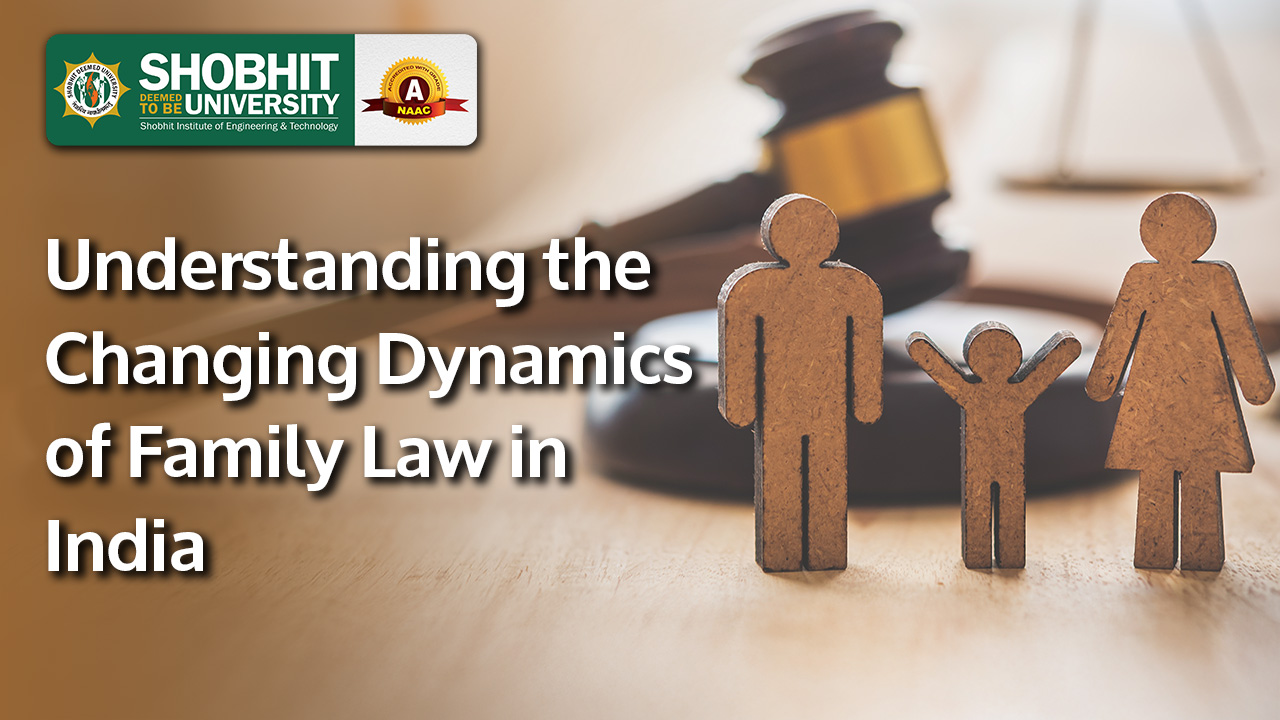
Understanding the Changing Dynamics of Family Law in India
Introduction: A Legal System Rooted in Tradition, Now Evolving
Family law in India has traditionally been shaped by religious customs and personal laws, governing aspects like marriage, divorce, maintenance, guardianship, and inheritance. However, as Indian society becomes more urbanized, individualistic, and aware of rights, Family Law is witnessing significant transformation. This change reflects not just legal reform, but also social evolution, pushing the law toward greater gender equality, child welfare, and inclusivity.
Foundations of Family Law in India
Family law in India is a blend of religion-based personal laws and secular legislation, making it both diverse and complex.
Key Personal Laws:
- Hindu Law – Hindu Marriage Act, 1955; Hindu Succession Act, 1956
- Muslim Law – Based on Shariat; applies to marriage, maintenance, and inheritance
- Christian and Parsi Law – Governed by Christian Marriage Act, Parsi Marriage & Divorce Act
- Special Marriage Act, 1954 – A secular law for inter-faith and civil marriages
Core Areas Regulated:
- Marriage and Divorce
- Maintenance and Alimony
- Child Custody and Guardianship
- Succession and Inheritance
Winds of Change: Social and Judicial Reforms
With the judiciary playing an active role, Indian family law has adapted to modern values like gender justice, equality, and individual dignity.
Recent Developments:
Triple Talaq declared unconstitutional (Shayara Bano v. Union of India, 2017) Equal inheritance rights for daughters in coparcenary property (Hindu Succession Amendment Act, 2005) Recognition of live-in relationships and rights of children born out of them Shift from patriarchal norms to a child-centric approach in custody decisions These changes mark a paradigm shift in how courts view the rights of women and children in family structures.
Contemporary Challenges in Family Law
Despite reforms, implementation gaps and social resistance often hinder justice delivery.
Key Challenges:
- Multiplicity of laws due to religious diversity
- Limited access to legal remedies in rural and marginalized communities
- Delays in family court proceedings
- Social stigma around divorce, adoption, and remarriage
There is an urgent need to modernize and unify family laws, perhaps through a Uniform Civil Code, to ensure fairness across all religions.
Career Opportunities in Family Law
The evolving nature of family law opens doors for dynamic and socially responsible legal careers.
Potential Career Paths:
- Family Law Advocate: Representing clients in divorce, custody, and maintenance cases
- Legal Advisor/Consultant: Working with women’s organizations, child rights NGOs, or government bodies
- Mediator/Conciliator: Facilitating out-of-court settlements in family disputes
- Academician/Researcher: Engaging in teaching, policy analysis, and legal reform
Skills Needed:
- Emotional intelligence and empathy
- Sound knowledge of personal and secular laws
- Strong communication and negotiation abilities
- Sensitivity to gender and cultural contexts
Conclusion: Law as a Tool for Social Harmony
The changing dynamics of family law in India reflect a larger societal shift toward recognizing individual rights and gender equality. As courts, legislature, and civil society continue to push for inclusive and progressive legal frameworks, family law is becoming more responsive to real-life social concerns.
For law students and professionals, this is a moment of opportunity, to not just practice law, but to shape it for a more just and equitable society.
